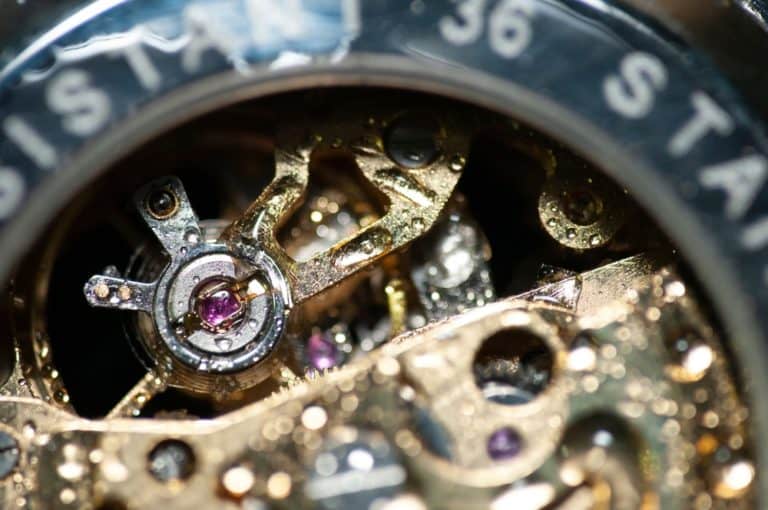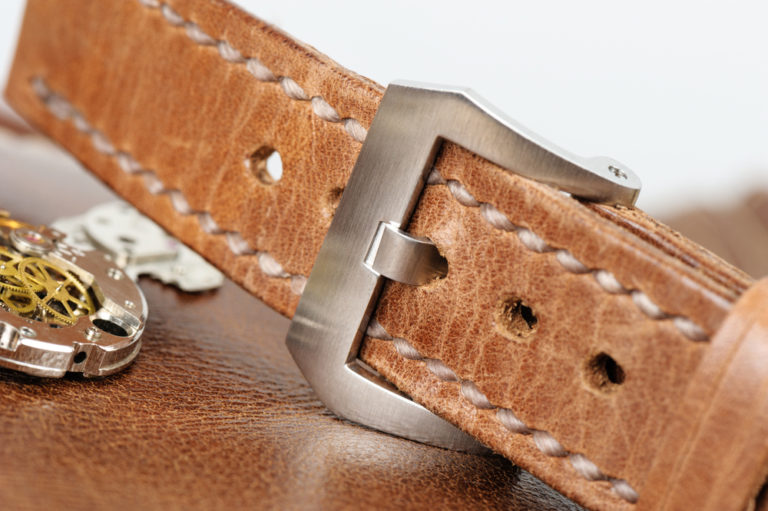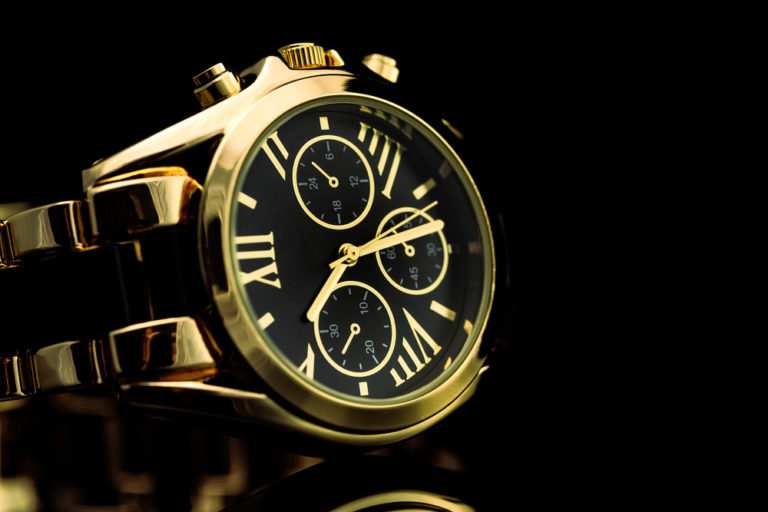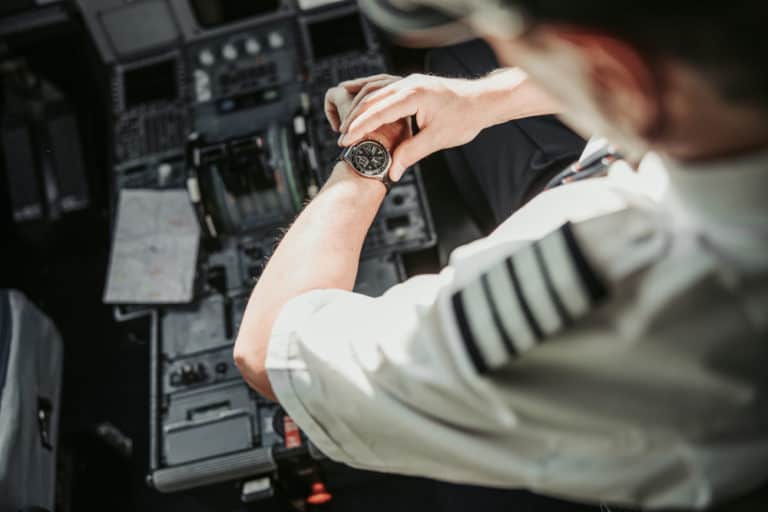Modern watches are marvels of engineering. With extremely small mechanical parts, complex movements, and highly precise engineering, there has been a substantial improvement in the accuracy of watches since their invention more than 150 years ago. Unfortunately, almost no earth watch has perfect accuracy, though some are more reliable than others.
Most mechanical watches will be accurate to around +/- 5-10 seconds per day, with more precisely engineered watches being accurate to around 2-3 seconds per day. The watch’s accuracy depends on its age, quality, and engineering precision.
While most reputable watch brands design their watches to be as accurate as possible, different factors can affect the accuracy of a watch over time. Generally, the more expensive a watch is, the more precise the engineering will be. They will often also contain features to mitigate any errors that may occur and protect the watch from outside forces.
How Accurate Is A Mechanical Watch?
As with many other types of measuring devices that use mechanical parts, a mechanical watch’s accuracy is influenced by internal and external factors. Companies such as Rolex, Seiko, and other luxury watchmakers pride themselves on having timepieces that take a long duration to veer off from the actual time. Still, the accuracy of a watch is rarely stable and exact.
The most commonly reported metrics for accuracy are around 5 to 10 seconds per day for standard watches, with more precisely engineered (and often more expensive) mechanical watches having an accuracy of between 3 and 2 seconds per day. Unfortunately, there has never been a mechanical watch that has had perfect accuracy, as its analog nature means that time drift will always occur.
Mechanical watches have become more accurate over time, with older watches experiencing problems that lead to more drift in their displayed time. Increased precision in the engineering of watch parts has led to newer mechanical watches experiencing fewer issues and higher accuracy.
How To Ensure Your Mechanical Watch Stays Accurate?
As a mechanical watch tends to stray from the time it was calibrated, it is important to ensure that you keep your watch as accurate as possible so that you don’t have to change the time constantly. There are some simple tips you can do to keep your watch accurate.
Firstly, you need to ensure that you wind up your watch every day at a set time. This will ensure that your watch stays powered and has enough force in the mainspring to move the parts in the watch and record an accurate time. It is also important to wind your watch up fully, as not doing so will mean that your watch hands stop moving more quickly than you expected.
Secondly, it is important to wear your watch every day and not to leave it in an idle position for too long. The balance wheel of a mechanical watch has been designed to adjust the time based on changes in the position of the watch, and gravity will change the movement of the internal gears based on the position of the watch relative to gravity.

Why Does A Mechanical Watch Lose Its Accuracy?
Since a mechanical watch is an analog device, a few factors can influence how far the time drifts. You need to take care of your watch and ensure that it does not get damaged, as damage can accelerate time inaccuracies and require you to reset the time more frequently manually.
Firstly, the temperature is also a minor factor in the loss of accuracy. Temperature changes can lead to the expansion and contraction of the case and hairspring of the watch, which can lead to changes in the movement of the gears. This problem is increased with extreme temperatures, but modern mechanical watches have the technology to rectify this problem.
Secondly, gravity can influence the watch’s movement, especially when the watch is laid in one position for long periods. Gravity causes the watch’s internal parts to move differently depending on its position relative to gravity. Wearing the watch daily can fix this, as the balancing wheel will adjust the time based on the changing position of the watch.
Thirdly, the hairspring coils of a mechanical watch may become magnetized, leading to extreme accuracy changes every day. This can be remedied by sending the watch through a demagnetizing machine; generally, the watch doesn’t need to be opened.
Fourthly, general wear and tear on your watch can negatively affect the movement and accuracy of your watch over time. Older watches can suffer from many problems, such as rust, dust, poor power reservation, worn-out parts, and the breaking down of the lubricant. These issues can be remedied by sending the watch to a qualified technician or the watchmaker.
Are Mechanical Watches More Accurate Than Quartz Watches?
Since the introduction of quartz watches in 1967, they have become the most common type of watch due to their reliability and lower cost. They are battery-powered and send out an electrical signal through a tiny quartz crystal that vibrates at a constant speed, which is used to move the hands of the watch.
Quartz watches have an accuracy of about 15 seconds per month, which is far more accurate than most mechanical watches. Another reason that quartz watches are more accurate is because they do not need to be wound up like mechanical watches. This prevents time loss from forgetting to wind up your watch, which can also be more convenient for the user.
Ultimately, this does make quartz watches more useful for daily activities as they are typically more convenient and reliable than mechanical watches. On the other hand, mechanical watches are typically more valuable and are generally collected more than quartz watches. Choosing which type of watch to buy depends largely on your personal tastes and what you want out of your watch.
Conclusion
As a mechanical watch is an analog device, it is important to remember that there will always be some inaccuracy in your watch’s time, but this is what makes a mechanical watch special. The process of looking after your watch and winding it up daily can be enjoyable and remind you that you have a special and intricate piece of technology that will last a long time.
References
- https://www.hodinkee.com/articles/how-accurate-should-your-mechanical-watch-be
- https://en.worldtempus.com/article/watches/trends-and-style/the-origins-of-the-origins-of-the-quartz-watch-31326.html
- https://www.uniformwares.com/what-is-a-quartz-watch/
- https://www.gearpatrol.com/watches/a486352/quartz-watch/
- https://www.prestigetime.com/page.php?accuracy







